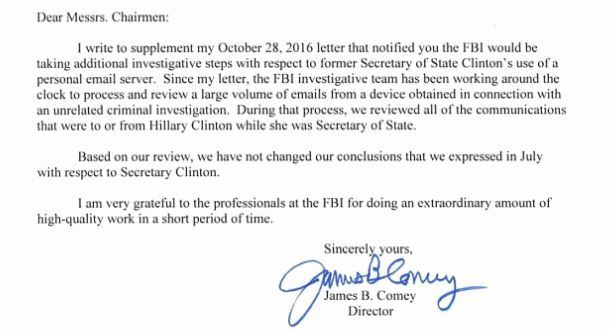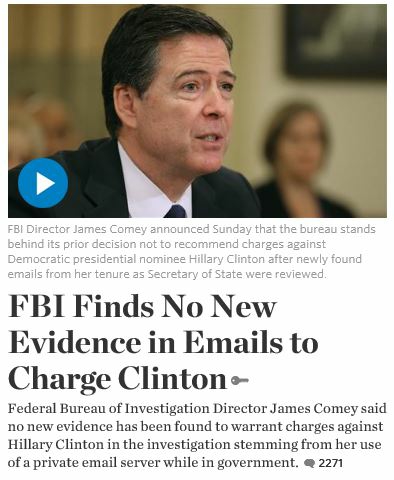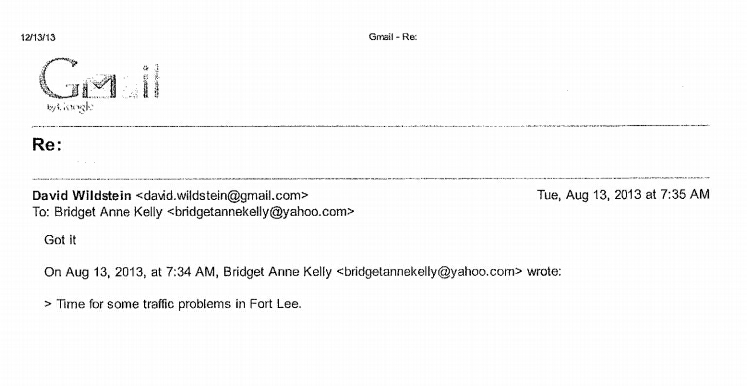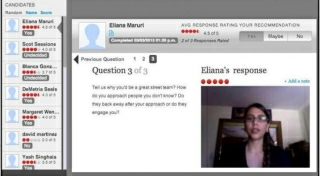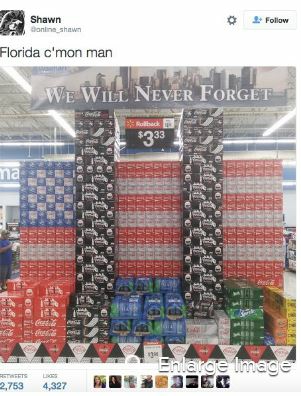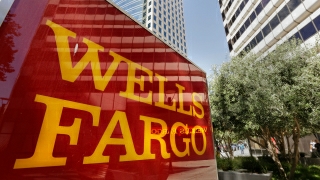FBI Says Nothing New in Clinton Emails
/Just under the wire-two days before a close election-the FBI has announced nothing worthy of attention, after all, in Hillary Clinton's emails. The news comes just eight days after the FBI, led by James Comey, said the organization discovered new emails during an investigation of Anthony Weiner. At the time, no charges were made, and the FBI said they had no information about the emails, which wasn't helpful just 10 days before the national election.
Some question whether the FBI could reasonably read all messages, but it seems that most emails were personal or duplicates of what the FBI already reviewed.
In his letter to Congress, Comey stressed the work of the FBI agents to review the messages and said their conclusion from July was unchanged: no charges will be made in relation to Clinton's email server.
The news made The New York Times' biggest online front page headline as well as The Wall Street Journals'.
Discussion Starters:
- Once again, did Comey do the right thing? What kind of pressure do you think he's been under?
- How, if at all, do you think this latest news will affect the election results? The first announcement did seem to tighten Clinton's lead. Will this announcement reverse it?
- Why are people influenced by this news-either way? The candidates have starkly different approaches, backgrounds, and plans.
